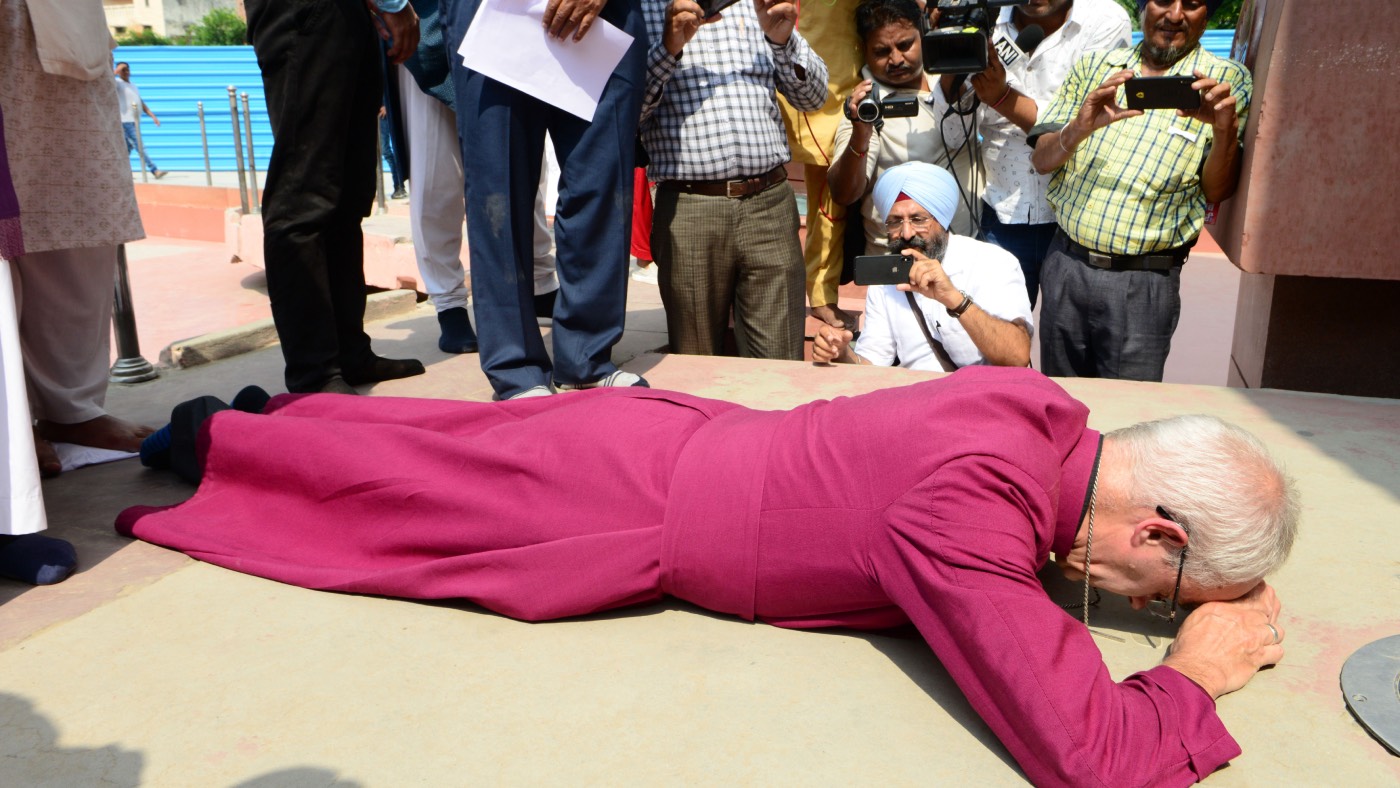What happened at the Amritsar massacre?
Archbishop of Canterbury has apologised for the 1919 mass shootings in India

A free daily email with the biggest news stories of the day – and the best features from TheWeek.com
You are now subscribed
Your newsletter sign-up was successful
The archbishop of Canterbury has apologised “in the name of Christ” for the 1919 massacre at Amritsar in India, when hundreds of people were shot dead by British troops.
Justin Welby prostrated himself at the memorial to the killings, and said: “The souls of those who were killed or wounded, of the bereaved, cry out to us from these stones and warn us about power and the misuse of power.”
On 13 April 1919, British troops fired on thousands of unarmed men, women and children in the northern city. According to colonial-era records, the death toll was 379, but Indian data suggests the number was closer to 1,000.
The Week
Escape your echo chamber. Get the facts behind the news, plus analysis from multiple perspectives.

Sign up for The Week's Free Newsletters
From our morning news briefing to a weekly Good News Newsletter, get the best of The Week delivered directly to your inbox.
From our morning news briefing to a weekly Good News Newsletter, get the best of The Week delivered directly to your inbox.
Approximately 10,000 unarmed men, women and children had assembled at the Jallianwala Bagh public garden in Amritsar to mark a spring festival. There was anger over the detention of two pro-independence leaders, whose arrest had already prompted protests.
Dozens of British soldiers, spearheaded by Brig Gen Reginald Edward Harry Dyer, sealed off the exit. Dyer ordered the soldiers to open fire without warning. As panic broke out, people tried to flee, with some leaping into a deep well.
An eye witness remembered that “heaps of dead bodies lay there, some on their backs and some with their faces upturned,” adding that “a number of them were poor innocent children”.
The Guardian reports that Dyer said the firing had been ordered “to punish the Indians for disobedience,” but Winston Churchill, then secretary of state for war, later called the decision “monstrous”.
A free daily email with the biggest news stories of the day – and the best features from TheWeek.com
There have been previous gestures of regret from Britain but never a formal apology. In 1997, the Queen laid a wreath at the site but Prince Philip spoiled the moment by reportedly saying that Indian estimates for the death count were “vastly exaggerated”.
In a visit in 2013, the then prime minister David Cameron described what happened as “deeply shameful” but stopped short of an apology. Last year, Theresa May told the House of Commons that the massacre was “a shameful scar on British Indian history,” adding: “We deeply regret what happened and the suffering caused.”